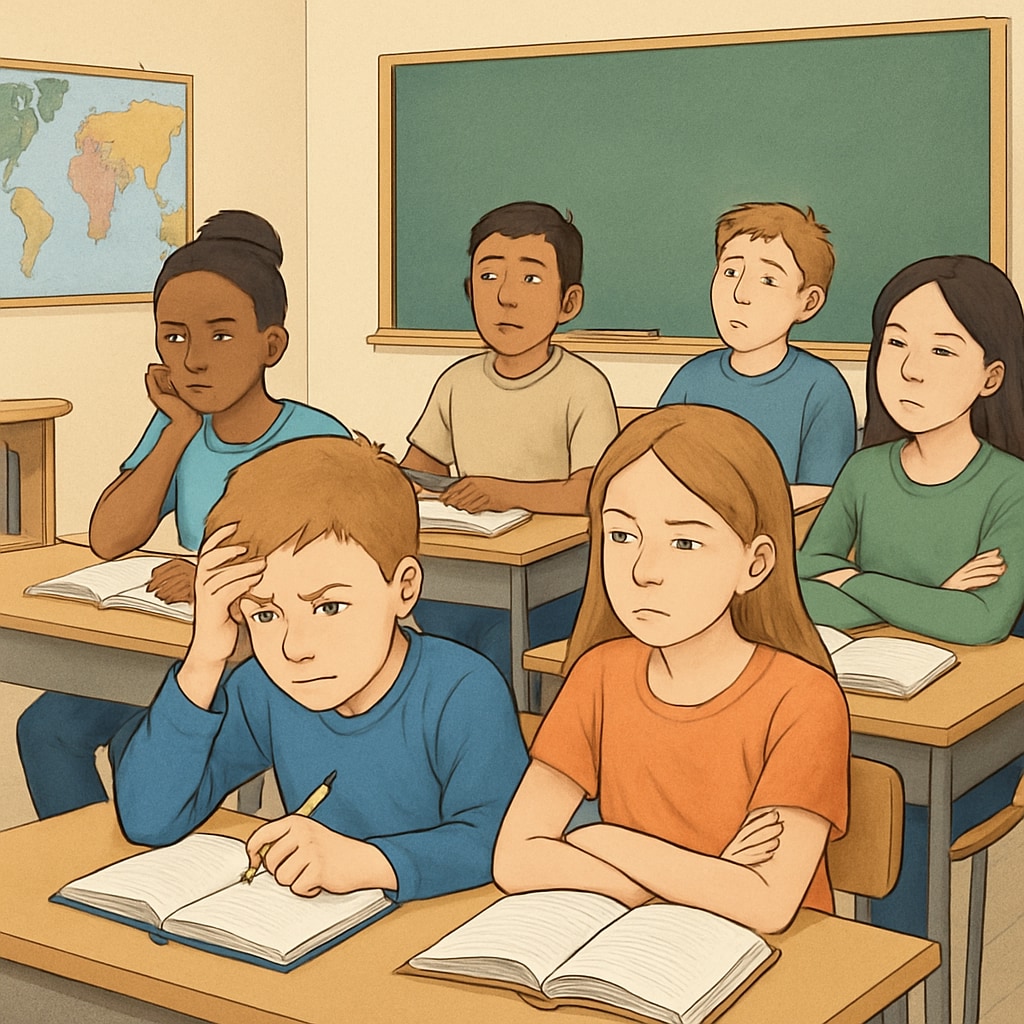The “genius” label, often celebrated in the education system, can inadvertently create pressure for students while fostering an environment of inequality. In K-12 education, the widespread use of this label not only affects those who receive it but also those who do not. This article examines the unintended consequences of labeling students as “geniuses” and explores ways to build a more inclusive, growth-oriented educational environment.
The Double-Edged Sword of the “Genius” Label
The “genius” label is often intended to praise and motivate exceptional students. However, it frequently comes with unintended negative consequences. Being labeled as a “genius” places immense pressure on students to maintain high performance at all times. It can lead to fear of failure, burnout, and even mental health struggles. According to a study published by the American Psychological Association, students labeled as high achievers are more likely to experience anxiety and perfectionism.

Meanwhile, students who are not labeled as “geniuses” may feel undervalued or overlooked. This creates a divide in the classroom, where those without the label may develop feelings of inferiority or lose motivation altogether. As a result, the label not only isolates “genius” students under its weight but also alienates their peers.
Why the “Genius” Label is a Poor Measure of Potential
One of the core problems with the “genius” label is that it implies a fixed and innate quality. This contradicts the principles of growth mindset—a concept developed by psychologist Carol Dweck—which emphasizes that abilities and intelligence can be developed through effort and learning. Labeling someone as a “genius” focuses on the outcome rather than the process, undermining the importance of perseverance and resilience.
Additionally, the label reinforces traditional notions of intelligence, often prioritizing academic skills over other forms of talent, such as creativity, emotional intelligence, or practical problem-solving. By doing so, it narrows the definition of success and fails to recognize the diverse strengths of all students.
Creating a Growth-Oriented Education System
To mitigate the negative effects of the “genius” label, schools must adopt a more inclusive and dynamic approach to education. Here are some actionable strategies:
- Focus on effort and progress: Teachers and parents should emphasize effort, improvement, and learning from failure rather than innate ability.
- Celebrate diverse talents: Schools should recognize and celebrate different forms of intelligence and skills, from artistic creativity to teamwork and leadership.
- Promote a growth mindset culture: Incorporate growth mindset principles into the curriculum, encouraging students to believe in their ability to develop through hard work.
- Provide equal opportunities: Ensure that resources, attention, and support are distributed equitably among all students, not just those labeled as “gifted.”

By implementing these strategies, the education system can shift its focus from fixed labels to ongoing development, fostering a positive and inclusive environment for all students.
Conclusion: Moving Beyond Labels
The “genius” label, while seemingly positive, can have far-reaching negative impacts on both labeled and unlabeled students. It creates pressure, fosters inequality, and undermines the principles of growth and learning. To build a more inclusive and supportive K-12 education system, schools must move beyond fixed labels and cultivate an environment where every student is encouraged to develop their unique talents and potential. By doing so, we can ensure that education becomes a tool for empowerment rather than a source of division.
Readability guidance: This article balances professional depth with accessible language. Short paragraphs, active voice, and frequent use of transition words ensure clarity. Lists and examples make key points easy to understand, while technical terms are explained for broader accessibility.


